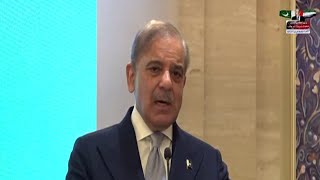European finance ministers are considering reserving seats for big countries on the powerful European Central Bank board, allowing their candidates to dominate monetary policymaking.
The move, backed by Germany, is the latest example of big countries flexing their muscles to control major European Union institutions on the eve of European Union expansion.
Response to the Big Four - Germany, France, Italy and Spain - locking up seats on the six-member ECB Executive Board has been muted so far. Only Finland has expressed unease.
"Finland would like (ECB appointments) to be based on competency not on nationality. But Finland has not yet reached any particular solution or stance," said a Finnish government source.
Yet the action would run counter to the founding principles of the five-year-old central bank, which has worked hard to set monetary policy on a euro-zone wide basis free of political bias, said Charles Wyplosz, international economics professor at the Graduate Institute for International Studies in Geneva.
"I think it is totally against the spirit and the interests of the ECB," said Wyplosz, a specialist in monetary policy.
Stubbornly weak economic growth, however, makes the ECB vulnerable to political manoeuvring and criticism, even though its statute clearly states the ECB is independent. Moreover, it is another example of how a European-wide vision is in short supply right now, analysts said.
Debate over an EU constitution broke down in December in bitter wrangling between big and small countries over voting powers.
France, Germany and Britain are ruffling feathers by holding a summit this week to set the EU agenda. Poland, one of 10 new countries joining the EU in May, regularly complains its interests are getting short shrift.
Now national interests are flaring up over appointments to the ECB board, which manages the daily affairs of the central bank and joins with the 12 euro-zone national central bank governors to set monetary policy. Spaniard Eugenio Domingo Solans ends his ECB term in May.
If Spain fills this vacancy - Jose Maria Vinals' name is being mooted - it could set a precedent whereby Germany and Italy would also insist on keeping their board spots which come vacant in 2006 and 2005 respectively. France holds the ECB presidency, so it has secured a spot through 2011.
Holding an Executive Board seat effectively doubles a country's voting power because monetary policy is decided jointly by the board and the 12 national central bank governors who sit together on the 18-member ECB Governing Council.
Furthermore, when the euro area expands beyond 15 members, the ECB plans to weight voting according to the size of a country's economy and financial sector. So securing safe Executive Board seats would give big nations even more clout.
The ECB declined comment on the finance ministers' debate.
ECB President Jean-Claude Trichet of France, like his predecessor Wim Duisenberg of the Netherlands, insists that decisions are made by consensus based on euro-wide interests.
Some leading ECB watchers call big-country domination only fair and necessary to keep majority support for a common currency.
Eight of the 12 euro zone countries have already seen one of their nationals on the ECB's board. Ireland and Belgium both are proposing candidates this time around, leaving only Luxembourg and Portugal that are still out in the cold.
The ECB statute requires only that candidates be of recognised standing and professional experience in monetary or banking matters. While the best candidate for the job is desirable, Thomas Mayer, Deutsche Bank chief European economist, said this is not always practical.
BR100
7,841
Increased By
30.9 (0.4%)
BR30
25,465
Increased By
315.4 (1.25%)
KSE100
75,114
Increased By
157.8 (0.21%)
KSE30
24,114
Increased By
30.8 (0.13%)






















Comments
Comments are closed.